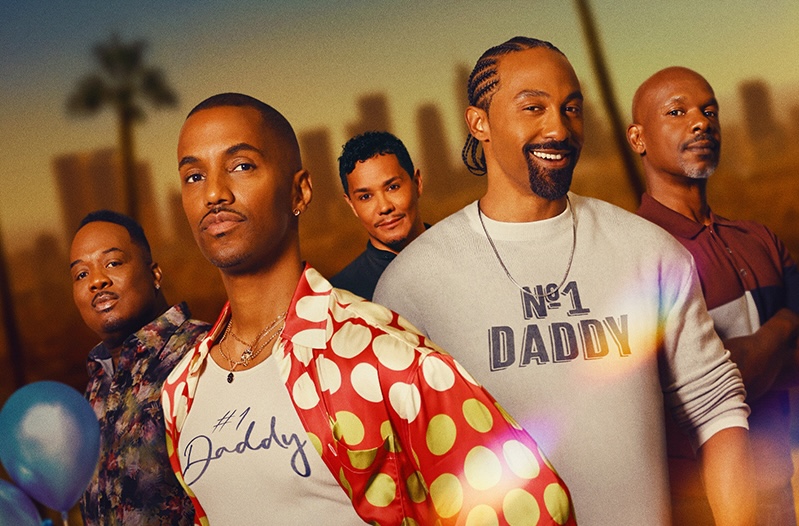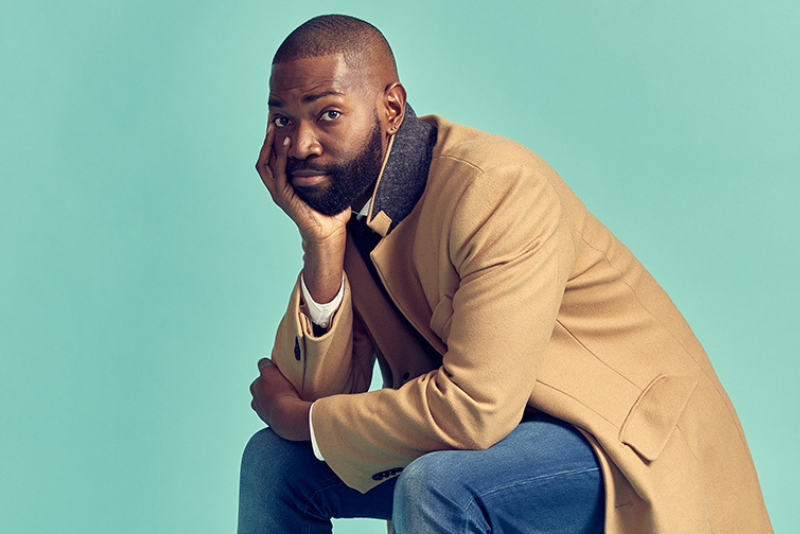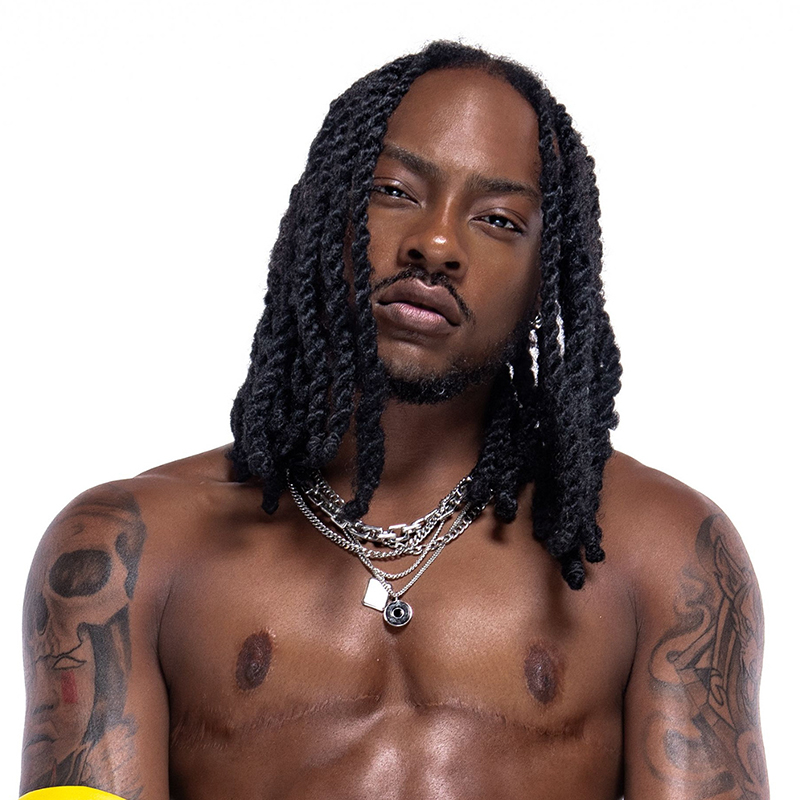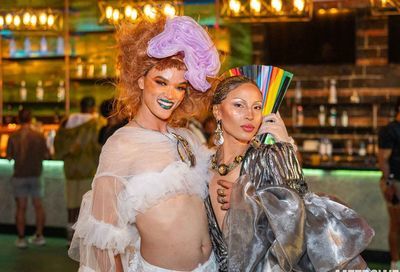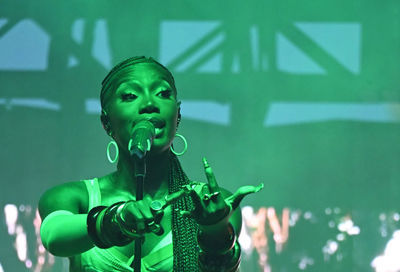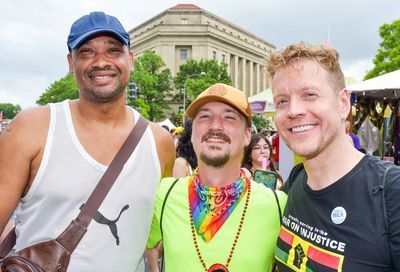Poison Pews
African-American leaders talk about homophobia in the black church
African-American leaders, students and activists gathered for nearly two hours inside Howard University’s Howard Thurman Chapel in Northeast D.C. recently to discuss homophobia in African-American churches. Among those gathered, it was generally agreed that not only does such homophobia exist, but most would rather ignore it.
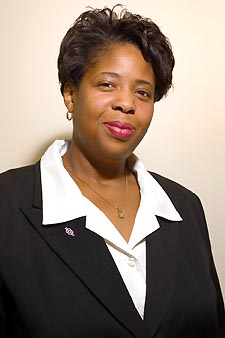 Donna Payne |
”We have people who are victimized every day in the church,” said Dustin Baker, a gay student at the Howard University School of Divinity, as he welcomed the crowd to the forum on Thursday afternoon, March 26. ”It’s a hard statement to say, but the reality is oppressed people do oppress people. At one point in time, the black church was an oppressed group of people…and at times we oppress individuals, especially people of same-gender-loving communities.”
Baker set an emotional tone as he shared with the audience of about 60 people that during his work as a counselor for gay youth, two — one 14, the other 17 — committed suicide.
The Howard University School of Divinity’s Student Government Association (SGA) and the People for the American Way Foundation organized ”Homophobia in the Black Church” as part of the historically black college’s celebration of Harambee 2009. Joi R. Orr, president of the SGA, described Harambee as ”the Kenyan tradition of community empowerment.”
Sharon J. Lettman, executive vice president for leadership programs and external affairs for the People for the American Way Foundation, the organization that sponsored the discussion, commended Baker’s work before explaining why the discussion was crucial.
”Amongst the African-American community, sexuality is not a conversation,” Lettman said. ”It’s not just homosexuality — sexuality is not a conversation.
”Gay rights is not a white-male issue,” she added, pointing to the need for a greater African-American counter to homophobia. ”We have allowed a subculture to be created within our community because we won’t have this conversation.”
To help initiate a national discussion about homophobia in the black church, Lettman said a transcript of the forum would be distributed across the country in the near future.
Panelists for the discussion were Rev. Dr. Kenneth Samuel, senior pastor of Victory for the World in Stone Mountain, Ga., and vice chair of the African American Ministers Leadership Council; Donna Payne, associate director of diversity at the Human Rights Campaign; Rev. Osagyefo Uhuru Sekou, Fellow In Residence at the Brooklyn Society for Ethical Culture; Rev. Byron Williams, pastor of the Resurrection Community Church in Oakland, Calif.; and Rev. Dr. Ronald Hopson, an ordained minister, a psychologist, and a professor at Howard University’s Department of Psychology and School of Divinity.
Rev. Tony Lee initiated the panel discussion, which frequently touched on biblical scripture regarding homosexuality.
Samuel explained that biblical interpretation is a ”very dangerous thing.”
”Certain text in the Bible, as we know, had been used to support slavery in America for over 200 years,” he said. ”Certain texts have been used to justify patriarchy and sexism,…militaristic warfare, beating of children…. We have toxic text in the Bible that needs to be interpreted in the light of the truth, and…from the light and lenses of the all-inclusive love of Jesus.”
Samuel said that before the Civil Rights Movement, African Americans had to find a way to believe in what was ”good and godly,” while reinterpreting text in the Bible that denied basic humanity.
”I think we’re at that crossroads again,” he said. ”Certainly in regards to LGBT persons, I think we have to look at that text through interpretative lenses and not literalistic lenses, because those literal lenses are very deadly, very dangerous.”
Sekou supported that argument, describing the ”black religious identity” as progressive and one that has inspired people around the world who are denied equal rights.
”We should be honored that queer folk appropriate our struggle,” he said. ”Their appropriating our struggle… is making a claim about what blackness is as a progressive identity. One could even argue that being black is queer. You’re subject to arbitrary violence, you are over-sexualized, and there are legal structures put in place to deny you equal rights. That sounds like gay folks to me.”
Sekou continued by saying that supporting legislation that denies marriage equality to same-sex couples empowers the same form of religion-based bigotry that denied African Americans the right to vote, in that some biblically based arguments were used to support segregation in America.
Payne made the conversation more personal, offering a crossroads she traveled with her mother. She spoke of a conversation in which she advised her mother that her work at the Human Rights Campaign would likely lead to her appearing on television, identifying her to TV audiences far and wide as an African-American lesbian.
”She said, ‘Oh my goodness, look, I love you, but do you have to tell everybody?”’ Payne remembered. ”That is what every LGBT, African American faces. The first frontier is within the church, their family.”
Payne said a recent study conducted by HRC among 5,000 GLBT people of color found that respondents identified their standing within their religious communities as something of great importance. They do not want to leave those communities, Payne explained, but homophobia is driving them away. The respondents’ concerns about their families and society as a whole were secondary.
In talking about solutions regarding homophobia in the black church, the panelists were all in agreement that it’s a conversation that must continue beyond the Thursday forum.
”Open, candid, honest dialogue is the first step in dismantling prejudice of any kind,” Samuel said.
Regarding more specific solutions, such as educating children, Payne suggested churches work with the Religious Coalition for Reproductive Choice.
Payne also urged that ministers who support GLBT people should contact the HRC or the National Black Justice Coalition, of which she is a board member, to ”create a vehicle” that would educate the country on issues ranging from homophobia to distinct issues the transgender community faces.
”If LGBT people keep coming to funerals where you take a transgender [woman] and put [her] into a suit or something that’s totally against who they were, that is so painful and hurtful to the community. It’s something that everybody must be sensitive around, and it’s something that happens particularly in the African-American community. I’ve seen it over and over again.”
Support Metro Weekly’s Journalism
These are challenging times for news organizations. And yet it’s crucial we stay active and provide vital resources and information to both our local readers and the world. So won’t you please take a moment and consider supporting Metro Weekly with a membership? For as little as $5 a month, you can help ensure Metro Weekly magazine and MetroWeekly.com remain free, viable resources as we provide the best, most diverse, culturally-resonant LGBTQ coverage in both the D.C. region and around the world. Memberships come with exclusive perks and discounts, your own personal digital delivery of each week’s magazine (and an archive), access to our Member's Lounge when it launches this fall, and exclusive members-only items like Metro Weekly Membership Mugs and Tote Bags! Check out all our membership levels here and please join us today!








